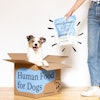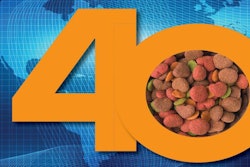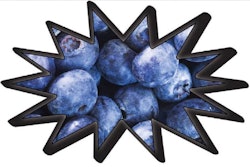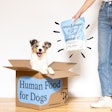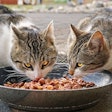
When Nature’s Variety, maker of raw and other natural pet foods, announced on May 12 that Agrolimen of Spain was purchasing its remaining shares (after initially investing in the St. Louis, Missouri, USA-based company two years ago), it marked yet another chapter in an ongoing saga in the pet food industry: that of a large, multinational, traditional company buying a much smaller specialty company, often operating in the natural space.
This narrative is also playing out in human food—and in fact, many of the large acquirers have both human and pet food divisions. Besides Agrolimen, which also owns Affinity Petcare as well as GBfoods and Eat Out on the human food side, numerous other examples exist, such as Mars, Nestlé and J.M. Smucker.
A few days ago, I came across an article in the Chicago Tribune: “As tastes shift, Big Food devours smaller, health-focused companies to survive” by Greg Trotter, about large food companies buying smaller, natural-based ones. I was struck by how much the acquisitions resemble what has happened in pet food.
“Such corporate marriages are becoming increasingly common in a changing food landscape, where large, traditional food companies are gobbling up smaller, nimbler firms already established in the coveted realm of food considered to be natural, organic and healthy,” Trotter wrote. “The authentic product stories and trusted brands that resonate with health-focused consumers often are easier to buy than to create in a lab.”
Hmmm, sounds very familiar, as do some of the reactions to acquisitions that Trotter described: “The social media reaction was both swift and expected last year when news broke that Oreo-maker Mondelez International acquired Enjoy Life Foods, the Chicago-based manufacturer of health-conscious foods free of common allergens. After all, Mondelez is a Big Food giant known for its processed foods. Enjoy Life Foods, by comparison, is a young company successfully catering to the fast-growing market of health-focused consumers. The two companies couldn't be more different.”
Trotter quoted the CEO of Enjoy Life, Scott Mandell, saying people commented that he and his company had “sold out,” and the new parent company would change everything.
Here’s the pet food version, after Nestlé Purina acquired Merrick Pet Care not quite a year ago. “Within hours of the Nestlé-Merrick announcement, comments—mostly negative—were flying on social media,” I wrote shortly after. “Merrick’s Facebook pages received thousands of posts for several days, with many lamenting the company’s ‘selling out’ to a larger corporation of which many commenters apparently have a very low, even adverse, opinion.”
Yet so far, Nestlé seems to have stuck by its promise to let Merrick operate as an independent business—just as it has with Zuke’s, the small, natural pet treat maker it purchased in early 2014. What’s more, Nestlé’s vast resources have allowed Merrick to keep its product development engine revved in high gear and for Zuke’s to come out with its first pet food line.
This, too, mirrors a pattern seen in the human food industry. “And wary of screwing up a good thing, large food manufacturers are often giving the smaller companies they acquire freedom to operate independently, along with access to abundant resources in sales and distribution,” Trotter wrote. “For companies like Enjoy Life, the impact of such deals can be transformative.” He added that the latter company operates as a wholly owned subsidiary, making its own business decisions—“an arrangement stipulated by Mondelez, not the other way around," Mandell said.
Don’t break what’s not broken
Trotter related a cautionary tale of what can happen when the parent company does interfere in its acquisition’s business, the path that cereal giant Kellogg’s eventually followed after it acquired natural cereal maker Kashi. At one point, the parent company began to treat Kashi more as a brand than a separate entity, according to a former executive quoted by Trotter, folding its sales function into the corporate structure about seven years after the acquisition, then six years later, moving Kashi into its headquarters in Battle Creek, Michigan, USA. Sales dropped precipitously (also partially because of economic factors), and the Kashi business, now back in California, USA, is just beginning to turn around.
We have seen similar scenarios play out in pet food acquisitions, most notably after Procter & Gamble purchased the Iams Co. in 1999 and eventually took the premium Iams and Eukanuba brands, previously dedicated mainly to the pet specialty retail channel, to mass market. P&G adopted a similar strategy with the Natura Pet Care brands California Natural and Evo after acquiring them in 2010, with a series of product recalls contributing to a perception of lower quality, too. (Mars Petcare, which acquired most of P&G’s pet food business in 2014, announced earlier in 2016 that it is rededicating the former Natura brands exclusively to the independent pet specialty channel.)
Nature’s Variety CEO Reed Howlett says his company will continue to operate as a standalone business in its St. Louis headquarters, adding that Agrolimen’s ownership will not affect the smaller company’s philosophy, culture or daily operations. Let’s hope that is how this corporate marriage plays out, which seems to be the best strategy for all involved—including consumers and their pets—to win.
Some players in human food acquisitions apparently have learned that lesson. As Trotter quoted an executive with General Mills describing its strategy after buying organic foods maker Annie’s in 2014: “Let’s not break what’s not broken.”


